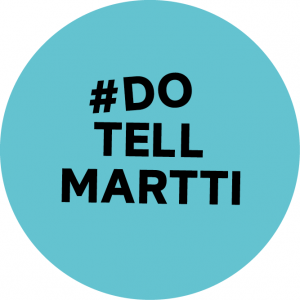Libya’s parties want to move on from anger: “We must build a future for our sons and daughters”
CMI brought Libya’s main political parties together in Tunisia. In the midst of the Libyan crisis, the parties are collaborating to create the conditions for peace. The politicians were grateful for the donations raised through the Don’t Tell Martti fundraising campaign. These donations made the meeting possible.
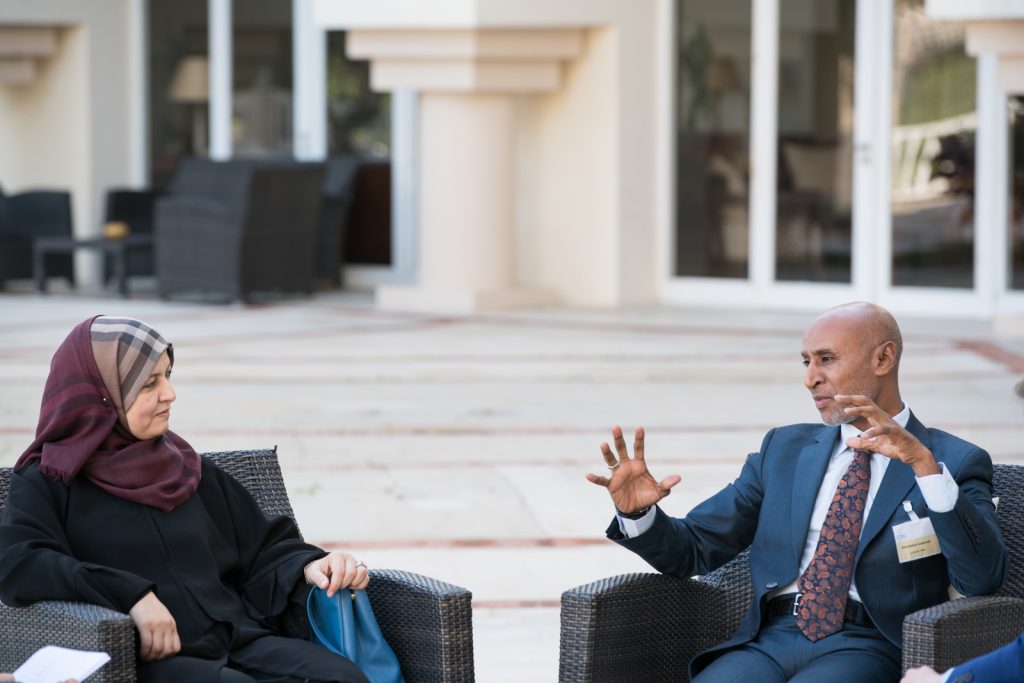
Majda Alfallah and Mohammed Almisawi think that Libyans should forget the past disagreements and start to build a common future. Photos: Riku Isohella
Voices are raised. Hands start to wave.
At the Residence hotel in Tunis, the Tunisian capital, a meeting between Libya’s main political parties is in full swing.
Majda Alfallah and Mohamed Almisawi are sitting opposite each other at a U-shaped table, arguing – constructively, it must be said – about the future of their country. Just six months ago, constructive argument would hardly have been possible.
Alfallah is a member of the Justice and Construction party, which was on the side of the 2011 revolution that overthrew Muammar Gaddafi. Almisawi, by contrast, is a former supporter of Gaddafi’s administration. He represents the National Struggle party, which operates outside of Libya.
A law that came into force in Libya in 2013 excluded Almisawi and other Gaddafi supporters from Libyan politics. This still gives cause for bitterness.
“I’m considered a traitor to the revolution,” Almisawi remarks at the meeting.
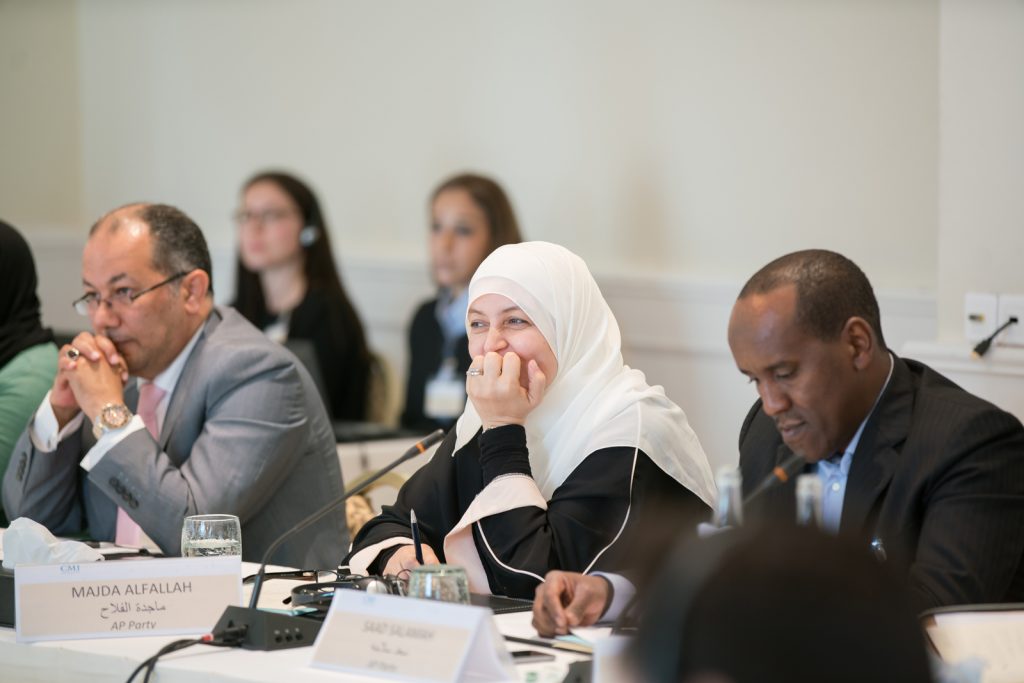
“We agreed on many things, and we managed to draw up recommendations for submission to the UN”, describes Majda Alfallah the outcome of the Tunis meeting.
Building trust between political parties and movements
The 2013 law is widely considered an obstacle to reconciliation – something that deeply divided Libya, and Libyans, desperately need.
Since the revolution, Libya has drifted into a situation where there are no functioning social structures, and political power is fragmented between competing governments and armed factions. Nobody seems to have a vision of the country’s future.
Since August 2016, CMI has been helping to build consensus among Libyan politicians by informally bringing the main parties to the same negotiating table. In the time since then, there has been such an increase in trust on all sides that many politicians have even become friends. In Tunis also, the participants can often see the lighter side of things, and happily take group photos on their smartphones.
“In the past there was no trust between the political parties and movements. These meetings help to build this trust,” Alfallah says.
“This is a great opportunity for me to meet people such as Almisawi, who were involved in the previous administration. In our country, there has to be room for all of us. We all have a duty to sit down together and create our common future,” he continues.
Alfallah emphasises that the enforcement of the 2013 law that excludes supporters of the Gaddafi regime has fuelled much anger and instability in Libya.
“Our future must be based on peaceful coexistence and cooperation, while at the same time fostering diversity. Only criminals should be shut away.”
Almisawi is grateful to Alfallah for his ability to build reconciliation between people.
“We have to leave the past behind us if we are to create a brighter future for our daughters and sons.”
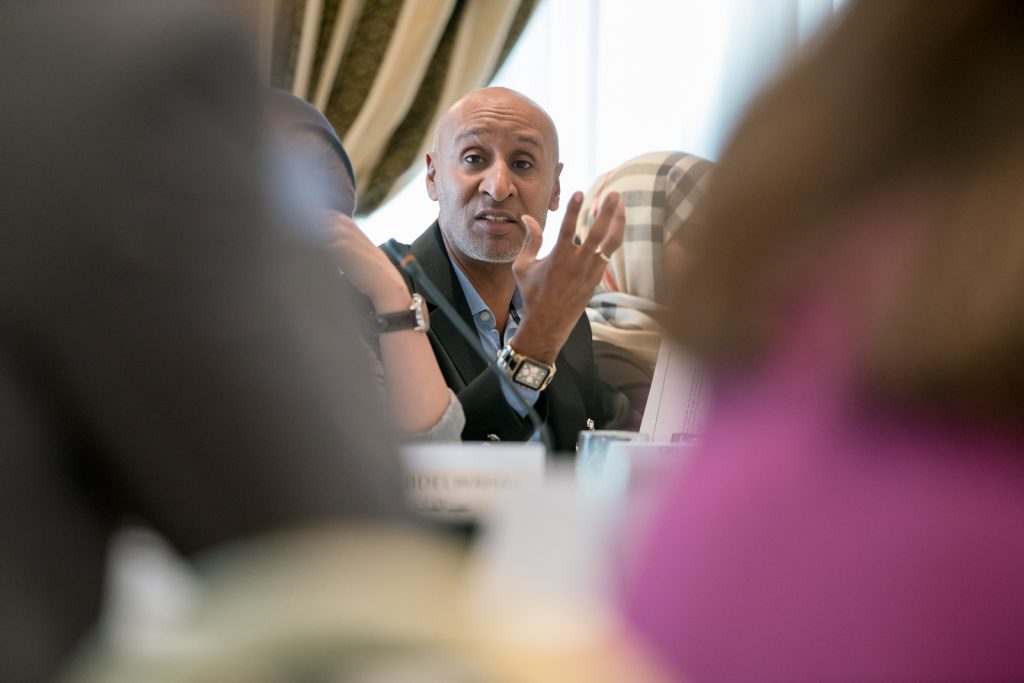
“I’m considered a traitor to the revolution,” Mohammed Almisawi remarked at the meeting.
New life to the UN peace process
The main aim of the meeting in Tunis is to breathe new life into the United Nations’ formal peace process. Many of Libya’s most important groups were excluded from the peace agreement that was reached in 2015.
The new UN Envoy to Libya, Ghassan Salamé, wants to give a voice to all Libyans – that is, to also allow the political parties to have a hand in deciding on the country’s future.
In Tunis, the main focus is on the national conference, which according to the UN is aimed at establishing guidelines for the new constitution, for functioning political bodies, and for a period of transition to the next elections.
The parties are in agreement that the national conference must represent the broadest possible spectrum of Libyan society. What this radical inclusiveness means is that the armed groups, which now have a lot of power, must also be included. The message that the parties jointly want to give is that the conference must result in clear steps and a definite timetable for the transitional period leading to the election.
“Overall, this was an extremely fruitful meeting. We agreed on many things, and we managed to draw up recommendations for submission to the UN,” says Alfallah.
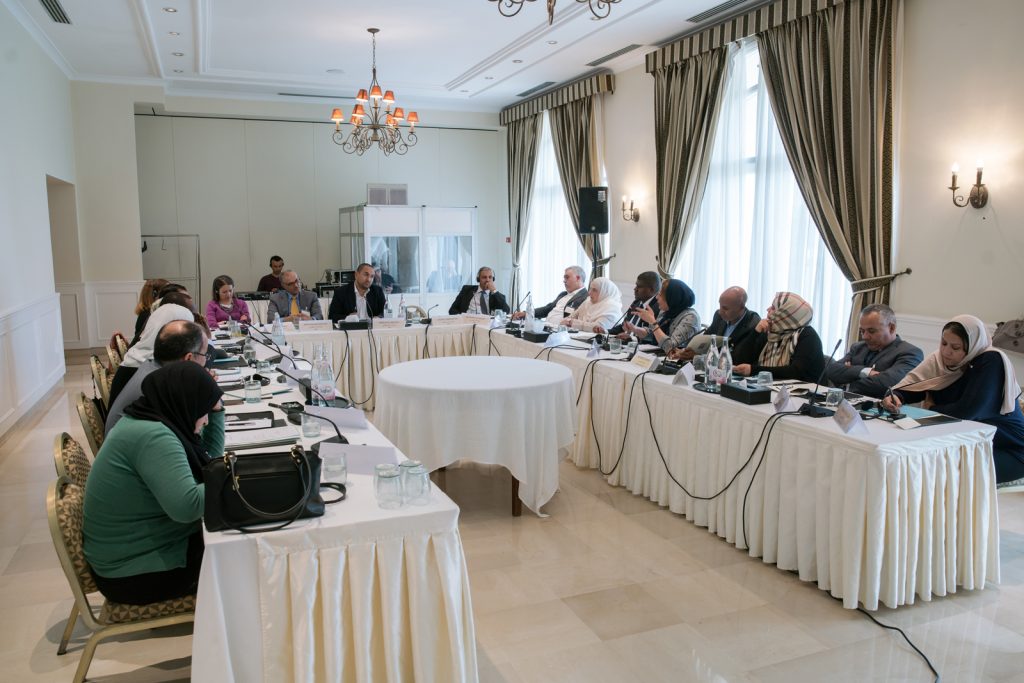
Constructive political debate is still in the developmental phase in Libya. The political parties gathered in Tunis hope to create more fruitful ways of doing politics.
“If there was no hope, I wouldn’t be here”
The ability of the Libyan political parties to cooperate is an important step towards making democracy possible at all in Libya.
In the 42 years of Gaddafi’s rule, political parties were banned. It is partly for this reason that constructive political debate is still in the developmental phase. In recent years, Libyan politicians have been preoccupied with mutual animosity and power struggles. This has been at the expense of hammering out a common vision and future for Libya. The lack of such a vision has further deepened the country’s crisis.
“Libyans have lost their faith in politicians, because politicians have failed to respond to people’s needs – for example, for food and physical safety. These problems will continue as long as we do not find a solution to the political situation,” Alfallah explains, before adding on a more optimistic note: “We are confident that our political collaboration will ease the way towards a more peaceful reconstruction of the country.”
Alfallah and Almisaw agree that Libya is currently so deep in crisis that the only direction left is upward.
“If things were hopeless, I wouldn’t be here today,” says Almisawi.
Both Alfallah and Almisawi are grateful for their support they have received from Finland. Without it, the meetings in Tunis would not have been possible. Some of the expenses involved have been covered by donations raised through the Don’t Tell Martti fundraising campaign.
“The Finns are a noble people. This is one thing our two countries have in common. CMI is creating a really unique model for peace, and is helping politics in Libya to mature, to grow towards democracy”, Alfallah says.
Antti Ämmälä/CMI
